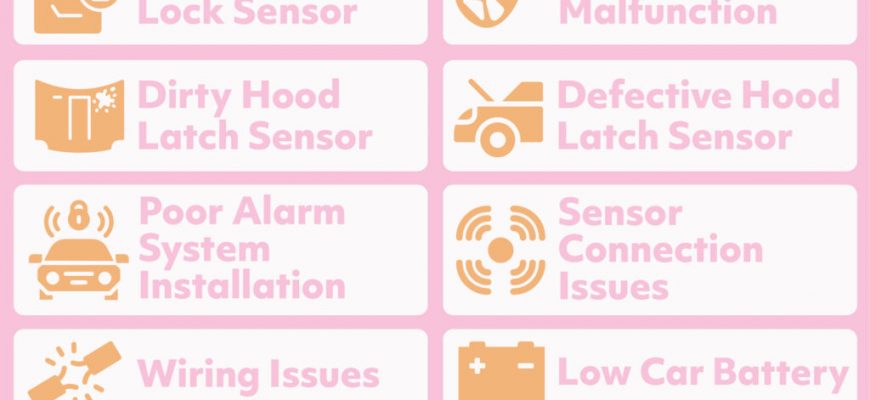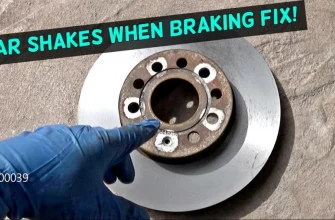A car alarm that repeatedly goes off is incredibly frustrating for both you and your neighbors․ It’s disruptive, annoying, and can lead to ignored alarms when a real threat occurs․ Understanding why your car alarm is triggering and knowing how to fix it are crucial․
- Common Causes of False Car Alarms
- Troubleshooting and Solutions
- 1․ Check Your Car Battery
- 2․ Inspect Door, Hood, and Trunk Sensors
- 3․ Examine the Hood Latch
- 4․ Test Your Key Fob
- 5․ Inspect Wiring Connections
- 6․ Consider Disabling the Alarm (Temporarily)
- 7․ Seek Professional Help
- Preventing Future False Alarms
- Living with a Car Alarm: Best Practices
- Understanding Your Car Alarm System
- When to Consider Replacing Your Car Alarm
- The Bottom Line
- Advanced Troubleshooting Techniques
- 1․ Using a Scan Tool
- 2; Checking the Grounding Points
- 3․ Testing the Siren
- 4․ Examining the Central Control Module (CCM)
- DIY vs․ Professional Installation: A Weighing of Options
- DIY Installation
- Professional Installation
- Understanding Aftermarket Car Alarm Features
- Legal Considerations Regarding Car Alarms
- Beyond the Alarm: Layered Security
- Final Thoughts
Common Causes of False Car Alarms
- Low Battery: A weak car battery is a frequent culprit․ Low voltage can cause the alarm system to malfunction․
- Faulty Sensors: Door, hood, or trunk sensors might be overly sensitive or damaged․ Even slight vibrations can trigger them․
- Hood Latch Issues: A worn or misaligned hood latch can cause the alarm to think the hood is being forced open․
- Key Fob Problems: A malfunctioning key fob can accidentally send signals to the alarm system․
- Wiring Issues: Loose or corroded wiring connections can disrupt the system․
- Aftermarket Alarm Problems: Poorly installed or outdated aftermarket alarms are prone to false triggers․
- Environmental Factors: Strong winds, loud noises, or even animals can sometimes set off sensitive alarms․
Troubleshooting and Solutions
1․ Check Your Car Battery
Use a voltmeter to check your car’s battery voltage․ A healthy battery should read around 12․6 volts when the engine is off․ If it’s significantly lower, get it tested and replaced if necessary․
2․ Inspect Door, Hood, and Trunk Sensors
Visually inspect all door, hood, and trunk sensors․ Clean them with a contact cleaner and ensure they are properly aligned․ If a sensor is damaged, replace it․
3․ Examine the Hood Latch
Make sure the hood latch is secure and properly adjusted․ Lubricate the latch mechanism to ensure smooth operation․
4․ Test Your Key Fob
Try using your spare key fob to see if the problem persists․ If the spare fob works fine, the original fob may need new batteries or reprogramming;
5․ Inspect Wiring Connections
Carefully inspect the wiring connections to the alarm system, looking for loose or corroded wires․ Clean and tighten any loose connections․
6․ Consider Disabling the Alarm (Temporarily)
If you’re unable to immediately identify and fix the issue, you might consider temporarily disabling the alarm to prevent further disturbances․ Consult your car’s owner’s manual for instructions on how to do this․
7․ Seek Professional Help
If you’ve tried the above steps and your car alarm continues to go off, it’s best to consult a qualified mechanic or car alarm specialist; They have the expertise and tools to diagnose and repair complex alarm system issues․
Preventing Future False Alarms
- Regularly maintain your car’s battery․
- Keep your car clean and free of debris that could trigger sensors․
- Ensure all doors, hood, and trunk are securely closed․
- Consider upgrading to a more reliable alarm system․
By addressing the common causes of false car alarms and taking preventative measures, you can significantly reduce the likelihood of future disruptions and enjoy a quieter, more peaceful experience․
Living with a Car Alarm: Best Practices
Even with a well-maintained alarm system, there are best practices to minimize the risk of triggering it unnecessarily:
- Parking Smart: Avoid parking in areas prone to vibrations, such as near construction sites or busy roads․
- Clear Surroundings: Ensure there are no branches or other objects touching your car that could trigger the alarm․
- Avoid Slamming Doors: Closing doors and the trunk gently can prevent unnecessary vibrations․
- Be Aware of the “Panic Button”: Accidentally pressing the panic button on your key fob is a common cause of alarms․ Store your keys carefully to avoid accidental activation․
Understanding Your Car Alarm System
Familiarize yourself with the specific features and settings of your car’s alarm system; Consult your owner’s manual for detailed information on:
- Sensitivity Adjustment: Some alarms allow you to adjust the sensitivity of the sensors․ Lowering the sensitivity can reduce false alarms․
- Valet Mode: Learn how to activate valet mode, which temporarily disables the alarm system․ This is useful when leaving your car with a valet or mechanic․
- Alarm Override: Understand how to manually override the alarm in case of a malfunction․
- Alarm Diagnostics: Some systems provide diagnostic information that can help identify the cause of false alarms․
When to Consider Replacing Your Car Alarm
If your car alarm is old, frequently malfunctioning, or causing more problems than it solves, it may be time to replace it․ Consider these factors:
- Age of the System: Older alarm systems are more prone to failure․
- Frequency of False Alarms: If the alarm is constantly going off, despite your best efforts to troubleshoot it, replacement may be necessary․
- Availability of Parts: Finding replacement parts for older systems can be difficult․
- Advancements in Technology: Newer alarm systems offer improved features and reliability․
When choosing a replacement alarm, research different brands and models to find one that suits your needs and budget․ Opt for a reputable brand with good reviews and consider professional installation for optimal performance․
The Bottom Line
Dealing with a car alarm that keeps going off can be a major inconvenience․ By understanding the common causes, troubleshooting the issue, and taking preventative measures, you can minimize false alarms and ensure your car’s security system functions effectively․ Remember to consult your owner’s manual and seek professional help when needed․ A little effort can save you (and your neighbors) a lot of frustration․
Advanced Troubleshooting Techniques
Beyond the basic checks, here are some more advanced troubleshooting steps you can take if you’re comfortable working with car electronics:
1․ Using a Scan Tool
Many modern cars have sophisticated onboard diagnostic systems․ Using an OBD-II scan tool can reveal error codes related to the alarm system or other electrical components that might be contributing to the problem․ Research the codes and take appropriate action, which may involve replacing a faulty sensor or module․
2; Checking the Grounding Points
Poor grounding can cause all sorts of electrical issues, including false alarms․ Locate the grounding points for the alarm system and clean them thoroughly․ Ensure they are securely attached to the chassis․
3․ Testing the Siren
Sometimes, a faulty siren can trigger the alarm system․ Disconnect the siren and monitor the system․ If the false alarms stop, the siren is likely the culprit and needs to be replaced․
4․ Examining the Central Control Module (CCM)
The CCM is the brain of the alarm system․ If you suspect a problem with the CCM, carefully inspect it for any signs of damage, such as burned components or water intrusion․ Replacing the CCM is often best left to a professional․
DIY vs․ Professional Installation: A Weighing of Options
Installing a car alarm yourself can save money, but it also carries risks․ Consider these factors before deciding whether to DIY or hire a professional:
DIY Installation
- Pros: Lower cost, learning experience․
- Cons: Risk of improper installation, potential damage to the car’s electrical system, voiding warranties (both for the car and the alarm system), time commitment, requires technical knowledge․
Professional Installation
- Pros: Guaranteed proper installation, expert knowledge, warranty on the installation, saves time and effort, reduces the risk of damage․
- Cons: Higher cost․
If you’re not comfortable working with car electronics or lack the necessary skills and tools, professional installation is highly recommended․
Understanding Aftermarket Car Alarm Features
Aftermarket car alarms often come with a range of features beyond basic security․ Understanding these features can help you customize your alarm system to your specific needs:
- Remote Start: Allows you to start your car remotely, which can be convenient in cold weather․
- Keyless Entry: Unlocks and locks your doors with the touch of a button․
- Two-Way Paging: Notifies you on a remote control if your alarm is triggered, even when you’re out of earshot․
- GPS Tracking: Allows you to track your car’s location in case of theft․
- Tilt Sensor: Detects if your car is being towed or jacked up․
- Glass Break Sensor: Detects the sound of breaking glass․
Legal Considerations Regarding Car Alarms
Be aware of local ordinances regarding car alarms․ Some cities have restrictions on alarm duration or decibel levels․ Excessive false alarms can result in fines or other penalties․ It’s your responsibility to ensure your car alarm complies with local regulations․
Beyond the Alarm: Layered Security
A car alarm is just one component of a comprehensive security strategy․ Consider these additional measures to protect your vehicle:
- Visible Deterrents: Use a steering wheel lock or other visible deterrent to discourage thieves․
- Parking in Well-Lit Areas: Park your car in well-lit and populated areas whenever possible․
- Remove Valuables: Don’t leave valuables visible inside your car․
- Install a GPS Tracking Device: A GPS tracking device can help you recover your car if it’s stolen․
- Window Tinting: Darker window tint can make it harder for thieves to see inside your car․
Final Thoughts
A car alarm that keeps going off is a frustrating problem, but it’s one that can be solved with careful troubleshooting and preventative maintenance․ By understanding the common causes, taking the necessary steps to address them, and implementing a layered security approach, you can protect your vehicle and enjoy peace of mind․










Very informative! I didn
This article saved me a lot of frustration! My key fob was the culprit. Simple battery replacement and it
This is a fantastic overview of why car alarms go off randomly! The troubleshooting section is super helpful and easy to understand.
Excellent guide! The breakdown of common causes and solutions is really well done. I appreciate the practical advice.
Great article! I had a low battery issue causing my alarm to go off. Checking the voltage was the key. Thanks for the tip!
Comprehensive and well-written! The section on aftermarket alarms is particularly useful. I